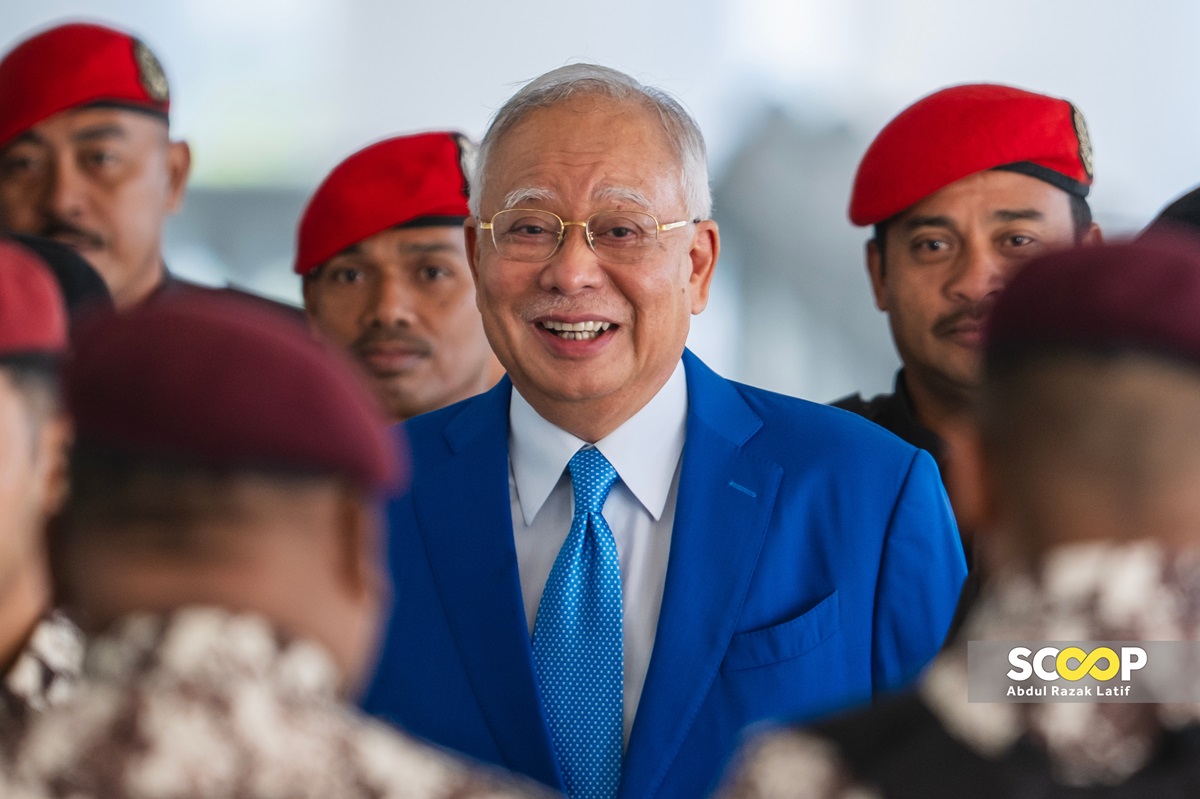IN recent years, the scourge of corruption and misuse of power has loomed large, prompting questions about the integrity of leadership in the country.
On the eve of the Festival of Lights, we were faced with the possibility of the release of former Prime Minister Datuk Seri Najib Razak over his 1MDB cases.
Many drew a sigh of relief when the High Court called for Najiv’s defence on 25 charges.
Since 2000, Malaysia has witnessed a series of high-profile cases involving political leaders facing legal challenges, particularly related to corruption and abuse of power.
- Datuk Seri Najib Razak (2015): The former Prime Minister faced a plethora of charges stemming from the 1MDB scandal, a massive financial misappropriation involving billions of dollars. Najib was convicted in 2020 and sentenced to 12 years in prison, though appeals have been allowed him to remain free for a time.
- Datin Seri Rosmah Mansor (2018): Najib’s wife, implicated in various corruption cases related to 1MDD and other government contracts; facing multiple charges of money laundering.
- Datuk Seri Azmin Ali (2020): Allegations of irregularities involving state development projects and abuse of authority during his tenure as minister.
- Datuk Seri Ismail Sabri Yaakob (2021-2022): Faced scrutiny over government contracts and procurement processes during his administration, though no formal charges emerged.
- Tan Sri Muhyiddin Yassin (2023): The former Prime Minister was arrested on charges related to corruption during his time in office. His detention marked a significant moment in Malaysia’s ongoing struggle with political accountability.
- Various state leaders: Numerous state assemblymen, local leaders, GLC CEO’s, have also faced corruption charges, with varying degrees of legal repercussions. The frequency of these incidents has raised concerns about governance at all levels.
A comparative perspective
When examining Malaysia’s situation, it’s insightful to compare it with other countries grappling with political corruption. For instance, in Brazil, the arrest of former President Luiz Inácio Lula da Silva in 2017 for corruption charges highlighted a broader systemic issue. Lula’s case, much like Najib’s, demonstrated how leaders can exploit their positions for personal gain. Both countries faced significant public outcry and protests, reflecting a populace demanding accountability.
Similarly, in South Korea, former President Park Geun-hye was impeached and later imprisoned on charges of corruption in 2017. The public’s involvement in these events showcases a pattern: citizens, fuelled by dissatisfaction, often play a crucial role in holding leaders accountable, leading to investigations and legal actions.
Factors enabling detentions
Several factors contribute to the cycle of corruption and subsequent legal repercussions for leaders in Malaysia:
● Weak institutional checks: The Malaysian legal system has historically been criticized for its lack of independence, allowing for political interference. This environment can embolden leaders to engage in corrupt practices, knowing that accountability may be elusive.
● Public discontent: Citizens are increasingly aware of the implications of corrupt leadership. Movements such as “Bersih” have galvanized public sentiment, leading to demands for transparency and governance reform. This discontent often leads to greater scrutiny of leaders, paving the way for legal actions against them. Unfortunately, public outcry is very seasonal in Malaysia…for reasons we don’t understand why?
● International Pressure: As Malaysia seeks to improve its global standing, international scrutiny can lead to calls for reform. The government’s participation in global anti-corruption initiatives further pressures local leaders to adhere to ethical standards. We are very tired of this indeed…
Responsibility and Accountability
While leaders often bear the brunt of accountability, it is essential to recognize that systemic issues and societal complicity play significant roles in perpetuating corruption. Voter apathy, lack of engagement in political processes, and even complicity in corrupt practices can contribute to a cycle where unethical behaviour flourishes.
Moreover, the electorate’s responsibility in holding leaders accountable cannot be overstated. Engaging in the democratic process—voting, advocacy, and civic participation—is crucial. A politically informed and active populace can influence the political landscape and demand better governance. Malaysians are easily swayed by the sentiments raised by the political masters, and don’t seem to step outside these “blind leading a blind” syndrome.
As Malaysia stands on the brink of another Deepavali celebration, the nation reflects not just on its cultural heritage but also on its political journey. The past two decades have illuminated a troubling pattern of leadership failures, characterized by corruption and legal repercussions. While recent developments suggest that more leaders may face scrutiny, the question remains: will the people rise to hold them accountable, or will the cycle of impunity continue?
In the spirit of Deepavali, a festival symbolizing light overcoming darkness, perhaps it is time for Malaysia to strive for a political environment illuminated by integrity and accountability. As citizens celebrate, they must also remember the power they hold in shaping the future of their leadership…Malaysians must move out of our comfort zones and ensure corrupt leaders are stopped and not allowed to stay anywhere except in the prisons! – October 31, 2024
Ravindran Raman Kutty has been a communications practitioner for over 30 years

